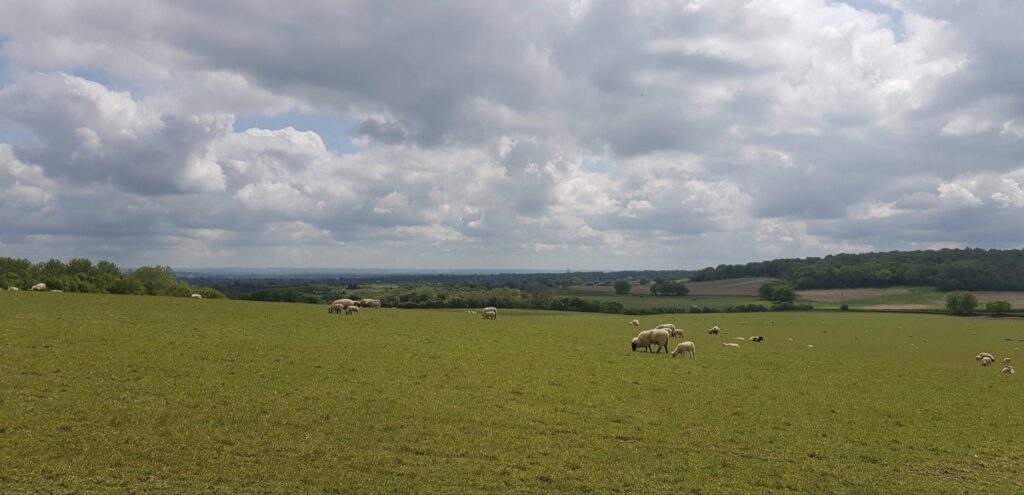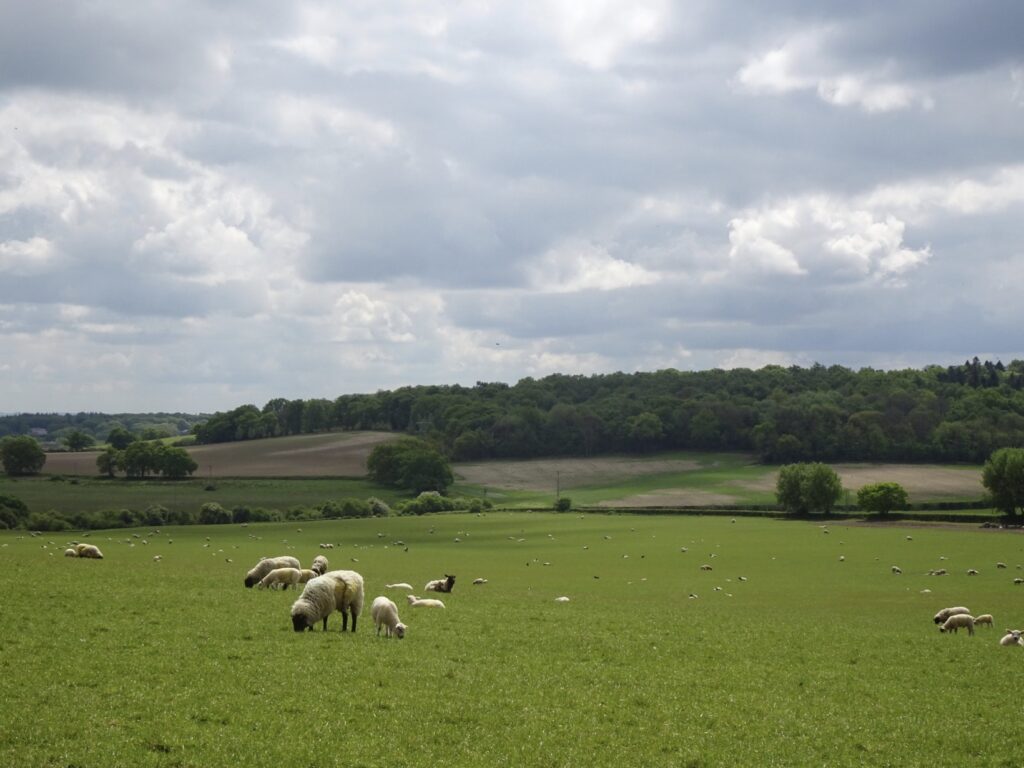I. PRESERVING THE VIEW/
SAVING THE PLANET


Until recently the fields were cultivated; in summer the brash yellow of rape seed mantled the downs, and in the autumn the farmers toned down their palette with a planting of winter wheat. But now the crops had disappeared and the downs were sown with grass, and grazing there peaceably was a large flock of sheep, their lambs half grown, still keeping close to their mother’s sides. I briefly appreciated the picturesque addition of farm animals to this green belt land until, that is, I learned from a passing walker that the introduction of livestock is merely a prelude to the fields being given over to a solar farm, all 31 hectares of it, the size of 45 football pitches. It will be surrounded by six-foot high security fencing, she said, altering the view for the foreseeable future.
This news filled me with consternation. The blotting of a quintessential English landscape by a sea of slate-grey solar panels, like some exploded kitchen floor, filled me with dismay. But was that just my Nimbyism or what T.J. Demos calls “parochial localism” raising its ugly head?[2] We need green energy to break our dependence on fossil fuels, I could see that, but should it decimate what the council calls “environmental and social goods”, ruining one of the most spectacular outlooks around Oxford? And those locals who, like me, play truant in nature, dial down the pace of modern life in pastoral reveries, accompanied by nothing more than “the live murmur of a summer’s day”;[3] should their needs also be considered? Couldn’t we save the planet by putting these solar farms in a location less blessed with natural beauty? I wondered as I made my way along the Chilswell track and turned for home. And what is the energy footprint of such a vast installation? I muttered as I turned the key to my front door; what happens to outdated solar panels, to the precious metals used in their construction and extracted from God knows where?
[1] See: https://www.poetryfoundation.org/poems/43606/the-scholar-gipsy
[2] T.J. Demos (2016), Decolonizing Nature: Contemporary Art and the Politics of Ecology, Berlin: Sternberg Press, p.7.
[3] Matthew Arnold, The Scholar-Gipsy (1853).